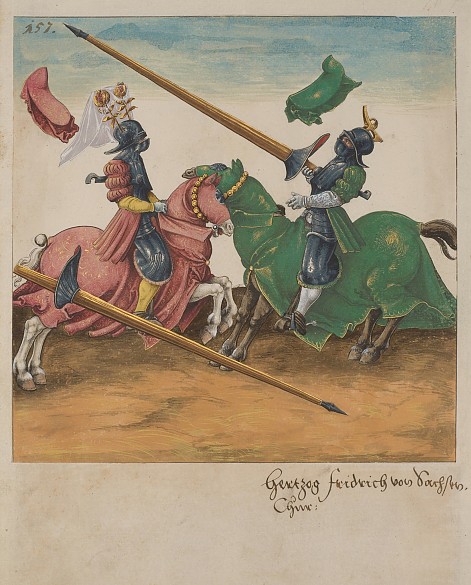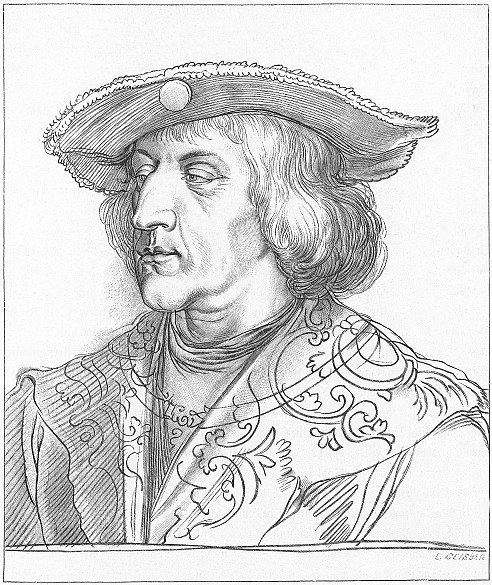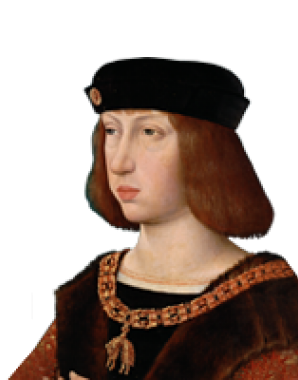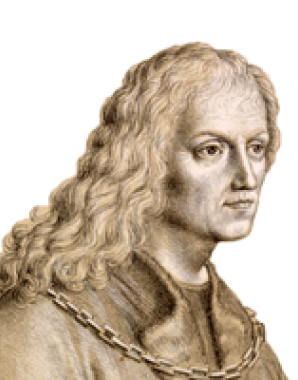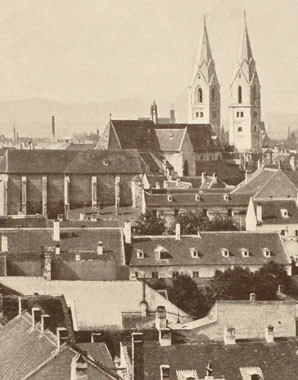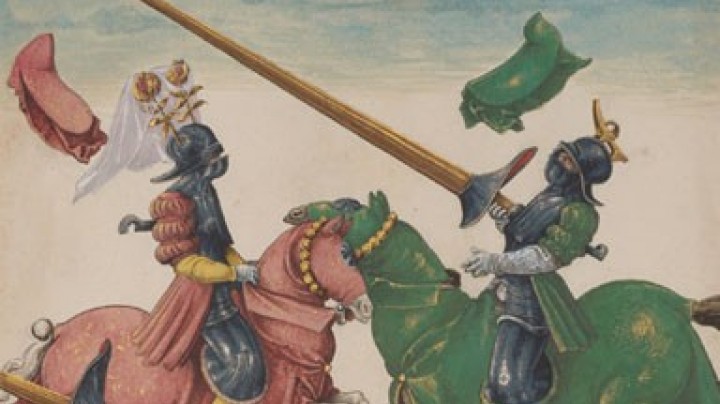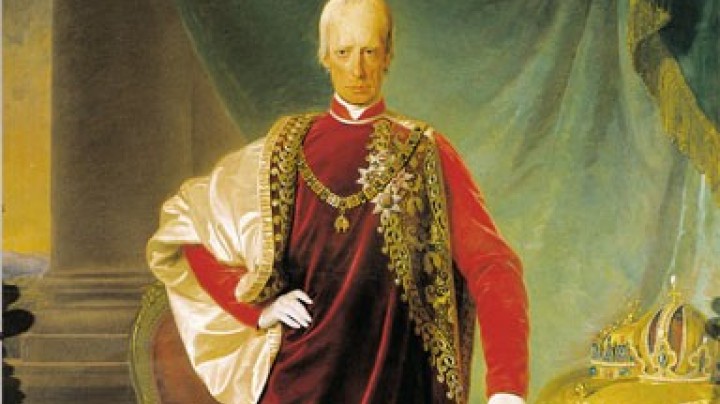The last knight: Maximilian I
Maximilian I is one the most popular Habsburg emperors. He paved the way for the dynasty to become a world power.
The conclusion of Maximilian’s autobiographical work WeißkunigHe who makes no memory of himself during his lifetime will have none after his death, and will be forgotten with the tolling of the final knell.
Although Emperor Maximilian I, a son of Frederick III, is principally known for his policy of dynastic marriage, he by no means fought shy of war: within forty years he conducted no fewer than twenty-five military campaigns. He was elected Roman-German king in 1486 and became regent in 1493 following his father’s death. Maximilian’s wars created difficulties with respect to his actual coronation as Emperor. Even when he had himself declared ‘Roman Emperor Elect’ in 1508 in Trent, he was not crowned by the Pope, as the Venetians, with whom he was at war, would not allow him to pass through their territory. Consequently, Maximilian mounted an elaborate ceremony in Trent in order to give official expression to his new status. Pope Julius II gave his blessing from afar.
Through inheritance, wars, and marriages Maximilian succeeded in making considerable extensions to the Habsburg dominions. From Archduke Sigmund of Tyrol he inherited Tyrol and the Swabian territories. In the war over the Bavarian succession he gained Kufstein, Rattenberg, Kitzbühel, and a number of towns in Upper Austria. He was less successful in his war in northern Italy, where he only acquired a few border towns. Maximilian made his most notable gains through marriages: not only did he himself come into a rich inheritance through his marriage to Mary of Burgundy but he also brought about a number of other judicious matches, notably that involving his son Philip, which led to the house of Habsburg acquiring Spain, Bohemia, and Hungary.
During his time in the Netherlands Maximilian had become familiar with a relatively progressive form of financial and governmental administration, which he took as his model as he sought to introduce a unified administrative system to all of the Habsburg hereditary lands. In spite of certain problems, Maximilian’s endeavours in this field laid the foundation for the modern Habsburg princely state. He was less successful with his attempts to carry out reforms in the Holy Roman Empire, where the Estates forced him to agree to numerous compromises. The enormous combined costs of Maximilian’s wars and efforts at reform resulted in his successors inheriting vast debts.
On account of his love of jousting, Maximilian was dubbed ‘the last knight’. He died in 1519 in Wels. His magnificent tomb in Innsbruck, only completed well after his death, was destined to remain empty, as Maximilian left instructions that he should be laid to rest in the church of Saint Georg in the castle of Wiener Neustadt.

